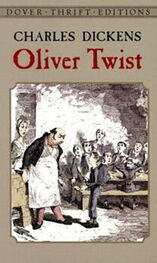Oliver VII , then, far from a mere afterthought to Szerb’s more ‘significant’ novels, is a source of new understanding of them. Indeed it is only when the three novels are taken together that the prevailing spirit of his art can be fully understood. Over the eight years his values have not so much changed as clarified, and Oliver VII is in some ways their most direct expression. The ‘neo-frivolism’ alluded to in Pendragon can now be seen as the subtle business it is. Szerb nowhere expands this concept into a formal philosophy — that would hardly have been in the spirit — but its implications are many and various. Its essence was caught by the religious historian Károly Kerényi, who said of the writer that “he never took himself seriously”. This was more than a compliment; it exactly reflected the value Szerb attached to the ‘self’ as in ‘self-interested’ and ‘self-important’. If personality is plural — as Freud, and Pirandello, knew, and Pendragon wittily demonstrated — then the different selves that make it up will include some very odd bedfellows. For Szerb’s mentors, if that is what they were, the consequences are potentially tragic: reality is unknowable, and the poor battered ego is locked into a hopeless struggle for stability. Szerb turns that conclusion on its head. Since life, for him, is a joyous, miraculous thing, and love not entirely an illusion, the instability of the ‘self’ is in fact a form of release. Its inconsistent nature, and the endlessly ingenious strategies it devises to keep its end up, are necessarily comic. The art that grows from this realisation is too benign for satire, too shrewd for sentimentality; it pulls off that almost impossible trick of accommodating a disillusion bordering on cynicism with an amused, indeed delighted, acceptance of the world with all its faults. Its origins may lie as much in Szerb’s religious predisposition as in any psychological theory, but the message it sends out was not a bad one for its time.
In October 1942, the questions of identity and loyalty that feature so strongly in Szerb’s fiction took a new and urgent form. A lifelong Catholic and a sincere if somewhat free-thinking Christian, he found himself reclassified as a Jew (by descent) and therefore an alien in the land of his birth. Religious affiliation was no longer a defence. Now it was his turn to choose: between living out the role he had been so cruelly allotted, and the chance to flee. At first he simply clung to hope, while his scholarly works were banned, and Oliver , passed off as a translation from the English of a supposed A H Redcliff, sank without trace (his widow kept it in a drawer for the next twenty years). He lost the right to teach in his university; was summoned for periods of forced labour. Next came the yellow star and the ghetto. Ahead lay the death camps. He was presented with repeated opportunities to escape; someone arranged an academic post for him at Columbia University. Each time he sadly but firmly declined. Some of those close to him, such as the poet Agnes Nemes Nagy, thought he acted from naive optimism, misplaced idealism or the misguided notion that his fame as a scholar and writer gave him exemption; and those factors may have played some part. But there was also a real commitment to Hungary and to his work there (“How can I teach students who haven’t read their Vörösmarty?”); and, even more, an unshakeable loyalty to those he loved. In 1944 he was officially granted permission to emigrate, but stayed because the Arrow Cross threatened reprisals against his wife. Similarly, just weeks before his horrific death in January 1945, he rejected help because his younger brother was in the same camp. On another occasion, he simply refused to leave if it meant abandoning his old colleagues and friends Gábor Halász and György Sárközy. (It made no difference. They survived not much longer than he did.) Friends wrote of the ‘mood of resignation’ that came over him, and the way he continued to put others first, to think of their needs when his own prospects were becoming so dark. It is impossible not to connect these attitudes with the values enshrined in his books, not least Oliver VII . Indeed, almost all the qualities that made Antal Szerb such a remarkable human being seem to find expression in his radiantly benign last novel.
LEN RIX
August 2007







